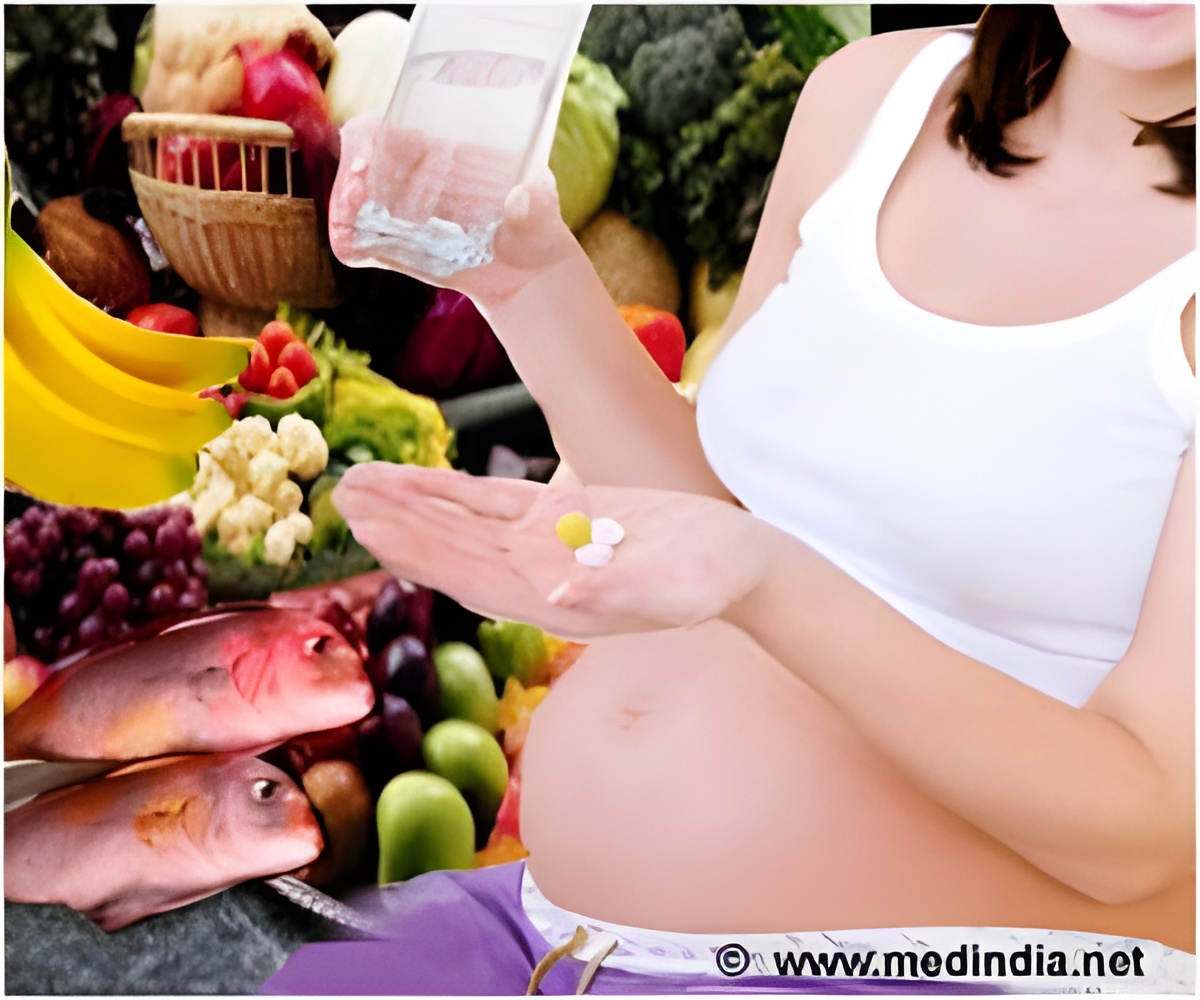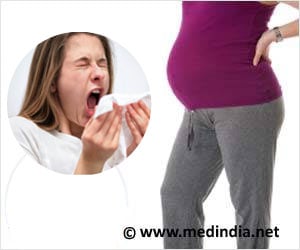Intake of choline-rich diets, like eggs and meat, during pregnancy may help reduce infant's risk from stress-related illnesses, hypertension later in life.

While epigenetic markers don't change our genes, they make a permanent imprint by dictating their fate: If a gene is not expressed - turned on - it's as if it didn't exist.
The finding became particularly exciting when researchers discovered that the affected markers were those that regulated the hypothalamic-pituitary-adrenal or HPA axis, which controls virtually all hormone activity in the body, including the production of the hormone cortisol that reflects our response to stress and regulates our metabolism, among other things.
More choline in the mother's diet led to a more stable HPA axis and consequently less cortisol in the fetus. As with many aspects of our health, stability is a very good thing: Past research has shown that early exposure to high levels of cortisol, often a result of a mother's anxiety or depression, can increase a baby's lifelong risk of stress-related and metabolic disorders.
"The study is important because it shows that a relatively simple nutrient can have significant effects in prenatal life, and that these effects likely continue to have a long-lasting influence on adult life," said Eva K. Pressman, M.D., study author and director of the high-risk pregnancy program at the University of Rochester Medical Center.
"While our results won't change practice at this point, the idea that maternal choline intake could essentially change fetal genetic expression into adulthood is quite novel," the researcher added.
Advertisement
The team found that higher maternal choline intake led to a greater amount of DNA methylation, a process in which methyl groups - one carbon atom linked to three hydrogen atoms - are added to our DNA. Choline is one of a handful of nutrients that provides methyl groups for this process. The addition of a single methyl group is all it takes to change an individual's epigenome.
Advertisement
Study researchers say the findings raise the exciting possibility that choline may be used therapeutically in cases where excess maternal stress from anxiety, depression or other prenatal conditions might make the fetal HPA axis more reactive and more likely to release greater-than-expected amounts of cortisol.
While more research is needed, Caudill stated that her message to pregnant women would be to consume a diet that includes choline rich foods such as eggs, lean meat, beans and cruciferous vegetables like broccoli. For women who limit their consumption of animal products, which are richer sources of choline than plant foods, she added that supplemental choline may be warranted as choline is generally absent in prenatal vitamin supplements.
"One day we might prescribe choline in the same way we prescribe folate to all pregnant women," noted Pressman, the James R. Woods Professor in the Department of Obstetrics and Gynecology.
"It is cheap and has virtually no side effects at the doses provided in this study. In the future, we could use choline to do even more good than we are doing right now," she added.
The findings appeared in an early study in The FASEB Journal.
Source-ANI















